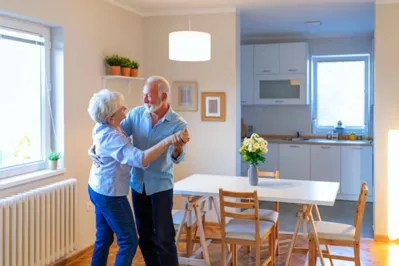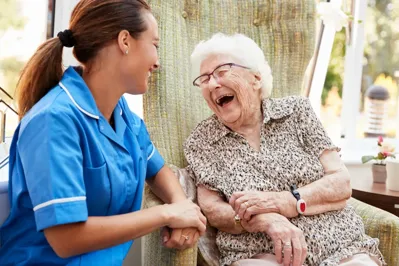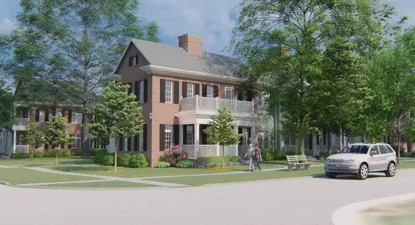The U.S. Department of Housing and Urban Development (HUD) offers a variety of housing programs designed to assist vulnerable populations, including low-income families, the elderly, and individuals with disabilities, in securing safe, affordable housing.
![]()
For senior citizens, HUD provides specific housing assistance programs to ensure they can have a stable home and receive the necessary support and services. Below is an overview of HUD housing programs and how they help elderly individuals.
What are HUD Housing Programs?
HUD is a federal government agency established in 1965 with the primary mission of providing decent, affordable housing to American residents while improving community life through urban planning and economic development projects. HUD manages several programs aimed at addressing housing inequality, offering rental assistance, and improving housing conditions. The key areas covered by HUD’s programs include:
1. Public Housing: Public housing consists of government-managed housing units available to low-income families, elderly individuals, and people with disabilities. Rent is based on the household’s income, typically 30% of their monthly income.
2. Section 8 Housing Choice Vouchers: This program allows low-income families to rent housing in the private market, with the government providing rental assistance. The landlord receives a portion of the rent from HUD, and the tenant pays the remainder. Elderly individuals can use this program to find suitable housing while reducing the burden of rent costs.
3. Supportive Housing for the Elderly Program (Section 202): This program is specifically designed for low-income elderly individuals, providing safe, affordable housing along with necessary care and support services to help seniors maintain independent living.
4. Community Development Block Grant Program (CDBG): This program provides funding to local communities for improving infrastructure, increasing affordable housing, and supporting vulnerable populations, including the elderly.
How Does HUD Help the Elderly?
Elderly individuals, especially those with low incomes, often face housing challenges, such as high rent burdens, poor housing conditions, and a lack of daily living support. HUD provides housing assistance through various programs to help seniors address these challenges and improve their quality of life.
1. Affordable Housing Options
Many elderly individuals live on fixed incomes, such as Social Security, and often spend a significant portion of their income on rent. HUD’s Section 202 Supportive Housing for the Elderly Program provides rental assistance specifically for seniors, allowing them to live in safe and comfortable environments without worrying about unaffordable rent. These housing options are often located in senior-friendly communities, close to public transportation, healthcare facilities, and shopping areas.
The Section 8 Housing Choice Voucher Program also plays a critical role in housing support. Elderly individuals can choose suitable housing in the private market, with the government covering a portion of the rent, significantly reducing their financial stress.
2. Provision of Care and Support Services
In addition to safe housing, elderly individuals often require care and support services. HUD’s Section 202 Supportive Housing Program provides not only affordable housing but also essential support services such as healthcare, housekeeping, and daily living assistance. These services help seniors maintain their independence while ensuring they receive the care they need.
Many supportive housing communities also offer social activities for the elderly, helping them avoid isolation and promoting overall well-being.
3. Improving Housing Conditions
HUD helps improve housing conditions for the elderly through Public Housing and the CDBG Program. Public housing provides seniors with safe, standard-compliant housing, while the CDBG program offers funding for communities to repair and maintain housing, improve infrastructure, and ensure that senior housing meets safety and comfort standards.
4. Community Engagement and Economic Support
HUD programs not only provide housing but also offer seniors opportunities to engage in their communities. Programs like the CDBG and other community development initiatives offer economic assistance to help elderly individuals maintain financial independence during retirement and stay connected with their community through social programs and services.
5. Preventing Homelessness
Homelessness poses a severe risk to elderly individuals, particularly those who have lost income sources, family support, or medical assistance. HUD provides emergency and transitional housing assistance to help seniors avoid homelessness and regain stability. By offering stable housing and support services, HUD ensures that elderly individuals can live with dignity and security.
Conclusion
HUD Housing Programs play a crucial role in helping elderly individuals access affordable housing and essential life support. Through programs like the Section 202 Supportive Housing Program, Section 8 Housing Choice Voucher Program, Public Housing, and the Community Development Block Grant Program, HUD helps low-income seniors secure appropriate housing, care, and support services. These programs not only address housing needs but also offer economic, health, and social support, ensuring that seniors enjoy a higher quality of life.


